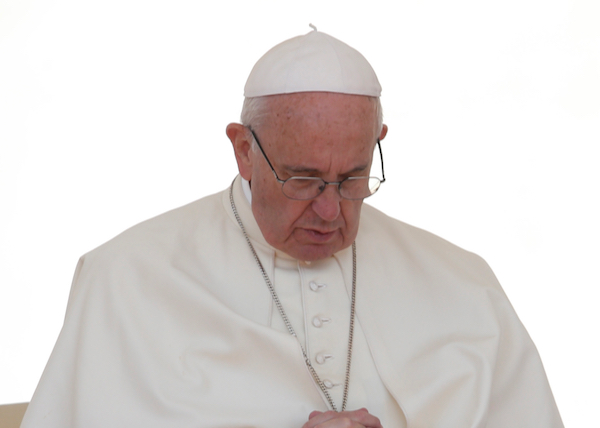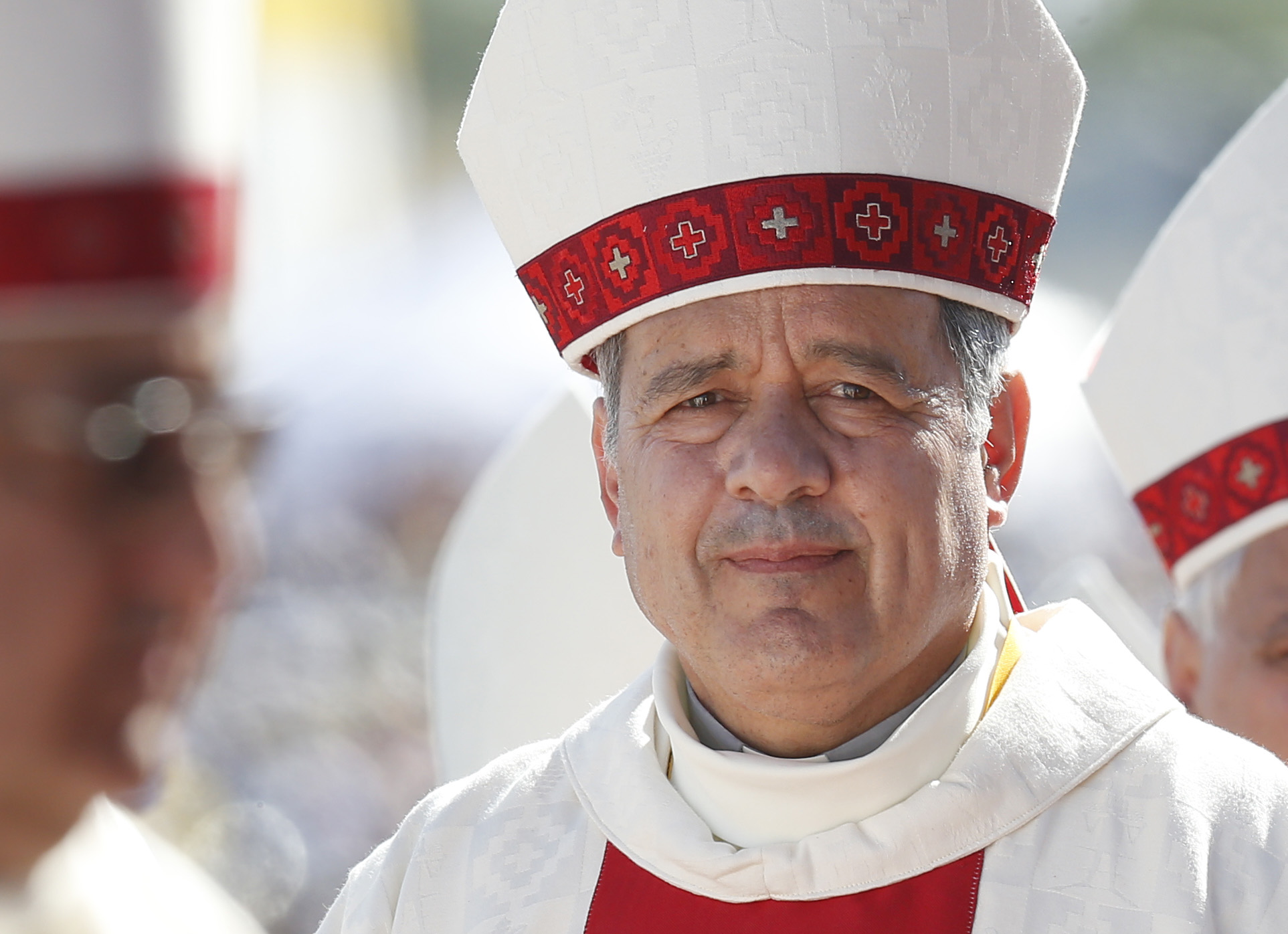Pope Francis’ apology for his handling of Chilean sex abuse crisis and summonsing of the bishops to Rome to discuss the scandal shows his intent on getting to the root cause of abuse cover-ups, according to one of the Church’s leading child protection experts.
Fr Hans Zollner, president of the Centre for Child Protection in Rome, says that the “root” issue in the case of the Bishop of Osorno, Juan Barros, accused of witnessing and ignoring abuse, is a need to “listen to victims, to learn about their perspective and look into all aspects connected."
He said the Pope was right not to remove Barros immediately, but to seek first to better understand the clerical sexual abuse crisis in Chile, a scandal which has done serious damage to the church in the country.
"There is always a danger to deal just with symptoms rather than root causes,” Fr Zollner told The Tablet.
“I appreciate the Pope’s willingness to confront this issue and not to deal with it in a frenzied way, but in a reflective and deliberate fashion. The Pope has not pushed for an immediate reaction by removing Bishop Barros, but instead realises that the Church in Chile needs more thorough and serious analysis and deliberation about this problem. Only then should any action be taken.”
He went on: ”The fact that he has invited 32 bishops from Chile to discuss the problems with him, along with the tone of the letter, means he is honestly, profoundly and seriously trying to get into the thick of Church culture and into what causes cover up."
Francis, Fr Zollner says, is now keen to understand “what has contributed to cover-up, denial and how can we as a local church and universal church get to the truth”.
He was speaking just hours after the Vatican released an extraordinary mea culpa letter by the Pope to Chile’s Catholic leadership, where Francis admits “serious mistakes” and asks “forgiveness from all those I have offended” over abuse in the country. The Pope asays he is planning to meet with victims and apologise to them personally.
His letter, which also invites the bishops for a summit about the matter in Rome, came after the Pope received a 2,300 page report from the Archbishop of Malta, Charles Scicluna, about the case of Bishop Barros, who is accused of turning a blind eye to abuse by his mentor Fr Fernando Karadima.
The Pope has faced heavy criticism over the Barros case, first for appointing him to Osorno and later for accusing the victims of slander for suggesting the bishop had covered up abuse. The scandal has done heavy damage to the Church in Chile and tarnished the Pope's reputation for handling abuse.
Karadima, a prominent priest in Chile, was found guilty of abuse by the Vatican in 2011 and ordered to live a life of prayer and penance. Bishop Barros is accused by victims of witnessing Karadima carry out abuse on them, something they believe makes him unfit to lead a diocese. The victims of Karadima have welcomed the Pope's apology as have prominent advocates for survivors. But also say it is time hold people accountable.
“It’s good that he’s been able to admit the mistake and apologise,” Marie Collins, a former member of the papal commission for the protection of children and safeguarding expert, told The Tablet.
“Now the focus should be on the survivors who have been badly hurt by his words, and by those from the Church in Chile, to help them heal. Then there has to be accountability for anyone who was negligent or for anyone who has misled the Pope.”
She added: “For anyone who did mislead him or give him untruthful advice, at any level in the Church, there have to be consequences.”
In his letter to the Chilean bishops, Francis said he made mistakes due to “a lack of truthful and balanced information” about the case, although a letter about the matter from Juan Carlos Cruz, one of Karadima’s victims, was apparently handed to the Pope by his child protection adviser, Cardinal Sean O’Malley.
Meanwhile, the Chilean Cardinal Francisco Javier Errazuriz Ossa – a member of the Pope’s important "council of nine" advisory body – has accused the victims of Karadima of trying to “profit” from the allegations of cover-up.
Mrs Collins, herself a survivor of clerical sexual abuse, was one of those who handed the letter from Cruz to Cardinal O'Malley, who later promised to give it to the Pope. The Vatican has not commented on whether the letter reached Francis or what happened to it.
“I think the fact it took so long for the Pope to listen to the right advice is the problem. It wasn’t that people weren’t telling him what was happening. It took far too long to get to the point he realised he was being misled, that he had made this quite dreadful mistake,” Mrs Collins said.
“This case was like the abuse crisis in microcosm, where survivors, who were telling the truth, are not believed.”
Fr Zollner said pointed out that in his letter the Pope said “balanced” information regarding the Bishop Barros matter had not met him.
“He had not received balanced information about the case, a letter gives one perspective, and another letter gives another perspective,” Fr Zollner says. “The questions is how one can one make sure the proper and sufficiently deep information is forwarded. That will always be a problem.”
Peter Saunders, another former member of the Pope’s child protection commission, say that victims will expect Bishop Barros to be dismissed.
“I think the apology by the Pope is good,” Mr Saunders, a board member of a new alliance of survivor advocates titled Ending Clergy Abuse (ECA). “This will be a serious healing move, so good on the Pope to have listened.”
Mr Saunders was an early critic of the decision to appoint Bishop Barros to Orono and has spent time in Chile and in the diocese. He describes the latter as a “community in shock, and not in a good place”.
Meanwhile, Mrs Collins says the Pontifical Commission for the Protection of Minors, set up by the Pope in 2014, could do more to help the Pope with handling abuse. She resigned from the body in frustration due to resistance to reform from elements inside the Vatican.
“The commission on abuse wanted guidelines on safeguarding policies to be distributed by the Congregation for the Doctrine of the Faith to every bishops conference in the world. But this never happened on the grounds of subsidiarity, and the authority of bishops in their own dioceses. That’s fine if the bishops are handling abuse cases correctly, but if they are not, as in Chile, then it’s a big problem,” she explained.
“The Pope needs an independent commission which has teeth. My fear is that it is becoming subsumed into the Vatican bureaucracy and the truly independent voices have been lost."
She went on: “It is not that those opposed to change in Rome are against protecting children, but rather they are allowing politics and clericalism to get in the way.”
Pic: Bishop Juan Barros of Osorno, Chile, arrives in procession for Pope Francis' celebration of Mass near Temuco, Chile, Jan. 17. After reading a report from a special Vatican investigator on clergy sex abuse allegations against the bishop, Pope Francis said he made "serious mistakes in the assessment and perception of the situation, especially due to a lack of truthful and balanced information." (CNS photo/Paul Haring)
Comment on this story on Facebook and Twitter.



 Loading ...
Loading ...